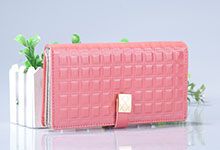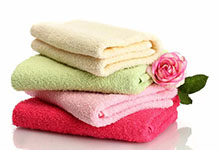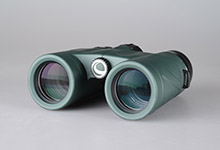How to Choose Garden Gloves
2018-03-19 15:06:12
Garden gloves can often help use do something, just like this:
Avoid ground-in dirt. Any gardener has had dirty fingernails and more than a few have had dirt ground into the skin. Gloves help keep that mess to a minimum. If you go the extra step and get waterproof gloves, your hands will stay dry too. You’ll also break fewer fingernails.
Help prevent infection. Your garden is filled with bacteria and other microbes. As simple scratch or nick can quickly lead to an infection.
Protect your hands. Insects and snakes live in your garden. They will not hesitate to bite if you reach into the dirt and disturb their home.

Two things should be considered when choosing garden gloves:
1. Fit. Do they fit your hands well?
2. Use. Do they fit the task for which you’ll use them?
How to check for fit
Gardening is hands-on. Your hands have to feel comfortable in your gloves so you can work freely but safely. A good fit is important. Gloves that are too big will increase your clumsiness and can cause you to drop things, misuse a tool, or even get cut. Gloves that are too small will restrict your movements.
Where at all possible, try on gloves before buying them. Use these tips to test for fit.
Place both gardening gloves on your hands. Check the length of the fingers. Is there excess cloth at the tips? The gloves may be too big.
Make a fist and flex your hands. Are the gloves too tight or too loose? If so, try another size.
If your hands are too small for adult sizes, try children’s styles.
If you cannot try on gloves, then you can measure you hand to choose the best size. Lay your hand flat. Use a measuring tape to measure the circumference of your hand around the knuckles at the widest part (minus thumb).
Four Kinds of Garden Gloves
One glove does not fit every garden job. You may want to consider having different pairs of garden gloves for different tasks.
These gloves are made from knit jersey or strong cotton. They are suitable for light planting chores, mixing soil, cultivating, and raking. Some styles have palms and fingers reinforced with leather or latex which make the durable, better for gripping, and more protective.
Advantages: Cloth gloves are inexpensive. They can be tossed into the washing machine and used over and over.
Disadvantages: Cloth gloves get wet, leaving your fingers cold and clammy. They’re not durable, so you’ll have to replace them more often than stronger gloves.
These gloves are made from cowhide, pigskin, sheepskin, or goatskin and are suited for heavy garden chores like planting, shoveling, moving rocks and wood, and using power equipment.
Advantages: Most leather gloves are durable, long-lasting., and keep your hands dry. Cowhide leather is particularly heavy-duty.
Disadvantages: leather gloves are more expensive than cloth gloves. They also tend to be thicker than cloth (especially when lined with wool or fleece), which can reduce your dexterity.
Nothing gets through rubber gloves, which can be a distinct advantage if you’re working in wet soil, mixing liquid garden fertilizers, or applying fungicide. But be forewarned: rubber gloves puncture easily.
Advantages: Rubber gloves are waterproof. They are also easy to launder by leaving them on and washing your hands, allowing the gloves to act as a “second skin.”
Disadvantages: Rubber doesn’t breathe, which leaves your hands clammy. It also punctures easily. These gloves are not suited for those allergic to latex.
These gloves are a good choice as a multi-purpose garden glove. Neoprene and nitrile are a synthetic oil-resistant rubber compound, making these gloves the best choice when you’re working with fungicides, fertilizers, or other garden products in the garden because they offer an impermeable barrier. They are also lightweight and breathable, allowing good dexterity in the garden.
Advantages: Nitrile-coated gloves are machine washable. They are less expensive than leather gloves and more durable than cotton gloves. For those allergic to latex, they present a good alternative.
Disadvantages: The breathable nitrile coating can allow soil particles to seep through the surface.
-
Tips on Cleaning Towels
2019-04-30 17:37:03















